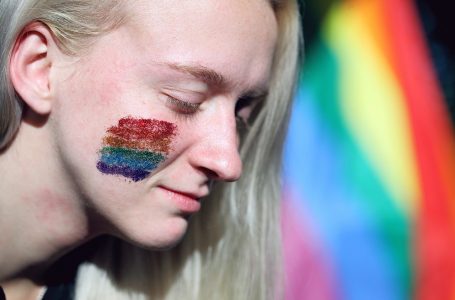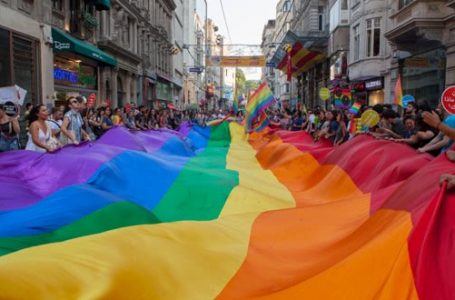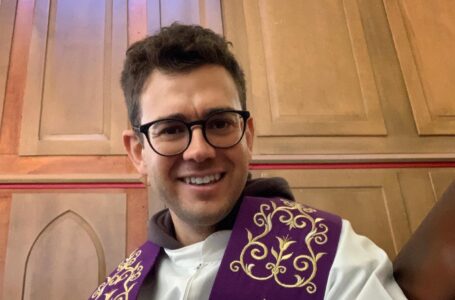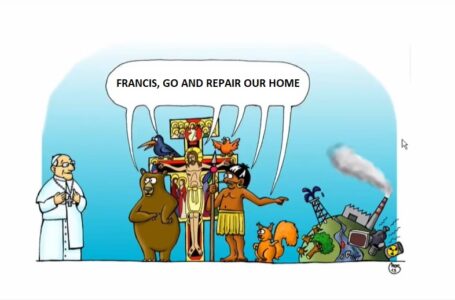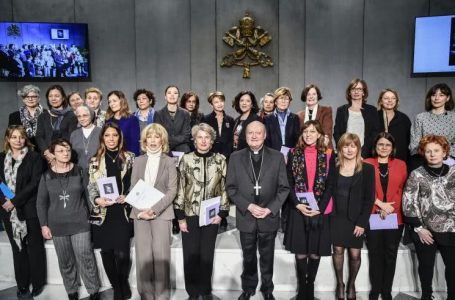How Can Catholics Welcome LGBTIQ Youth in Religious Youth Groups?
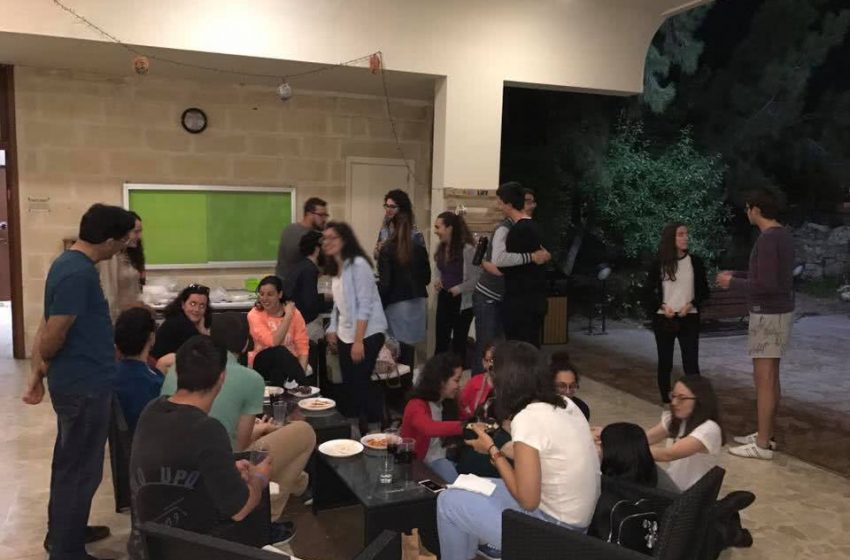
Maltese veteran practitioner in the social and youth field Mr Leonard Griscti, says youth leaders in Catholic groups should, “create an ethos where everyone feels welcome, be informed about LGBTIQ realities and culture and help young people adopt a positive attitude towards LGBTIQ people. If all LGBTIQ persons abandon the Church because they feel it rejects who they are, the institution would never come to understand them.”
1. How can a Catholic youth worker support people with LGBTIQ orientation in the youth group?
Mr Gristi: “It is very important for the health of the group as well as for LGBTIQ youth themselves, to create an ethos where everyone feels welcome – embracing differences and acknowledging the contribution and enrichment which everyone brings to the group.
Statistically, LGBTIQ persons are relevant and present and their invisibility can no longer be reinforced. I would say that the starting point would be for youth workers / leaders to receive specific and objective training on LGBTIQ realities and culture. We need to understand first and then use our understanding and knowledge to inform our practice. What I try to do is to nurture a group culture where everyone feels valued and if the LGBTIQ person declares themselves to me, I let them know that should they need any support, I am there for them – in the same way that I am there for everyone else. We need to assess whether LGBTIQ persons might need personal accompaniment that helps them accept and value themselves if there are issues of internalised homophobia or lack of acceptance from the family.”
2. How’s it best to address sessions dealing with sex and sexuality in the group?
Mr Gristi: “When it comes to sexual development, there are no specific problems really – but specific challenges faced by LGBTIQ youth need to be incorporated such that these youth feel that they are normal and included and the other youth get to adopt a positive attitude towards LGBTIQ persons. Very often this involves debunking stereotypes commonly present in society.

When it comes to sexual relations, again, realistically we need to present both facets of sexual involvement: some choose to engage in it for pleasure only whereas others engage in it as a powerful self-giving act of love in a committed relationship. We start from the human and then this leads to an understanding of what and why the Church teaches what it does on the subject. The most basic and core principle is being able to discern one’s motivations underlying sexual involvement and whether the activity is rooted in love and respect – thus bringing life (in the wide sense of the word) to the partners. The potential consequences of the “hookup” mentality for young people of all orientations need to be addressed and discussed frankly as well. Providing correct information is essential … there are many misconceptions about ways in which LGBTIQ persons express intimacy and generalisations do more harm than good. I think that debunking twisted messages communicated by the media and porn is still relevant for young people (and not so young) of all orientations.”
3. If a gay couple are openly in a relationship in the group, do you think they should be allowed to hug/kiss etc publicly in the group? Why?
Mr Griscti: “If they are comfortable doing it, and the culture of the group is that couples express their affection for each other in the group, then this should be no different for LGBTIQ persons. This is a personal opinion obviously and not everyone would agree. But we need to help those who are resistant to this, to understand that LGBTIQ persons are called to love and capable of doing it just like anyone else.
Prohibitions force LGBTIQ persons to choose to frequent other (very often much less healthy) places where they can be themselves. In Malta this is a problem for young LGBTIQ persons because the gay scene is very restricted and not all young people feel they fit in it – but they have very little choice, if any.”
4. How can the youth worker create a community where LGBTIQ persons feel welcome whilst being faithful to the teachings of the Catholic Church?
Mr Gristi: “The presence of LGBTIQ persons in a group might present a personal challenge to the youth worker or other pastoral operators who feel strongly about the issue. I believe that the message of the Gospel is universally valid for all. The official teachings of the Church need to be understood within the context of a Church that is itself on a journey of searching and the principles of ALL ethical schools of thought that guide moral decision-making should be presented. Some issues might require personal / couple discernment that goes beyond what is said and done in a group context … this is no different for anyone else. Having a pool of well-informed resource persons (including spiritual directors) who can take on this role is very useful.
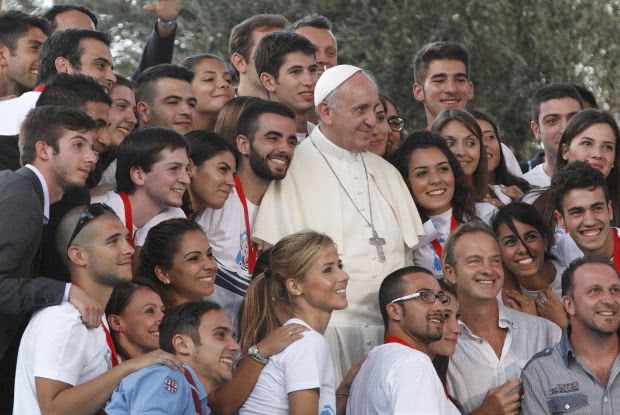
Any sessions or discussions need to be open rather than legalistic and they need to be guided by the “spirit” of the law”. This was Jesus’ approach too after all. Formation programmes need to include Pope Francis’ teachings (which are not new in a way) about personal discernment, love as the source and the primacy of the formed conscience. Also relevant is the understanding that the Church is not a club for the perfect but a clinic for the wounded – which we all are. When “straight” persons meet and get to know LGBTIQ persons for real, this is the best experience that helps understanding and acceptance beyond any amount of academic information. Like all other youth, LGBTIQ youth need to feel valued, capable and contributing. A helpful point of departure, as always in education, is to journey from the known to the unknown – and most individuals today know or are aware of friends, relatives, etc. who are LGBTIQ and who are known to be good persons. What is life like for them? What would they like to tell us if we gave them the space?”
5. The fact that many LGBTIQ Catholics feel great tension between their sexual orientation and the teachings of the Church is no news. What is your recommendation to LGBTIQ Catholics who feel this way?
Mr Gristi: “I am no expert on spiritual direction. But my recommendation is always to keep searching and to select communities that are meaningful to them in the circumstances of their lives and where they feel they are nurtured to grow as persons.

I also like to point out that ultimately God reads our innermost desires and intentions. I like to remind everyone that if all LGBTIQ persons abandon the Church because they feel it rejects who they are, the institution would never come to understand them. For it is in living-with others that we come to know them. Even locally, there are pastoral contexts that make it less difficult for LGBTIQ persons to belong and contribute. In this area though, we still have a lot of work to do. We need to inject hope as opposed to judgement. And we need to be understanding and supportive lest LGBTIQ Catholics wear out because they are made to feel that they need to constantly struggle against incessant opposing waves.”

For a copy of Mr Leonard Griscti’s thesis, contact us.
Read more:
– Catholic Stance On LGBT
– Between A Gay Catholic And God
